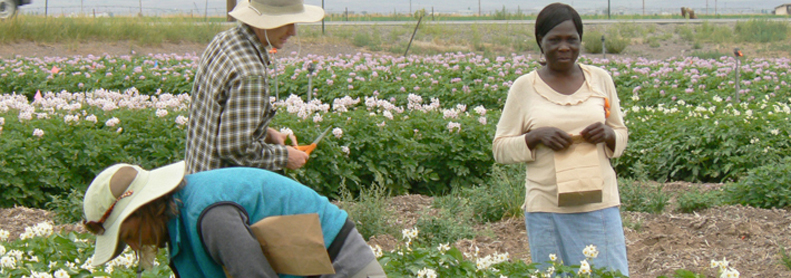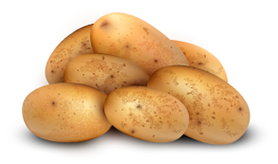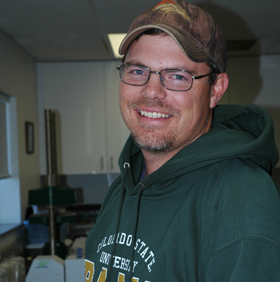Potato Crop Management
Welcome to the Field Physiology & Management Program
Potato Crop Management Home
Program Overview
The mission of the Colorado Potato Management and Physiology Program is to conduct research to establish cultivar specific management guidelines for the successful, sustainable, and economic production of new and existing potato cultivars, which optimize their genetic yield and quality potential, while minimizing economic inputs and environmental degradation.
Each potato cultivar has its own unique set of cultural management requirements for maximizing tuber yield of premium size and grade. Therefore, cultural management practices that maximize tuber production and quality of each potato cultivar must be developed.
The best guidelines for nutrient management, irrigation management, plant population management, vine kill management, and other management practices are obtained from field experiments conducted in replicated trials. New cultivars are much more successful when release is accompanied by cultivar specific management guidelines. Cultivar specific management information reported to growers is agronomically sound, economically advantageous, and environmentally responsible, while optimizing potato tuber yield and quality.
This program emphasizes cultural management practices, field physiology, and soil-nutrient-plant interactions for the production of advanced selections and existing cultivars. The specific objectives of the program are: (1) to develop optimum nutrient management guidelines for new potato cultivars; (2) to develop optimum in-row seed spacing for tuber yield, tuber size distribution, and tuber quality; (3) to define appropriate vine kill timing for tuber yield, tuber size distribution, and tuber quality; (4) to define water requirements for optimum production of potatoes; (5) to evaluate the effect of cut and single drop seed, seed size, and seed reconditioning on tuber performance: and (6) to evaluate tuber yield, tuber size distribution, and quality of advanced potato selections on grower farms.






